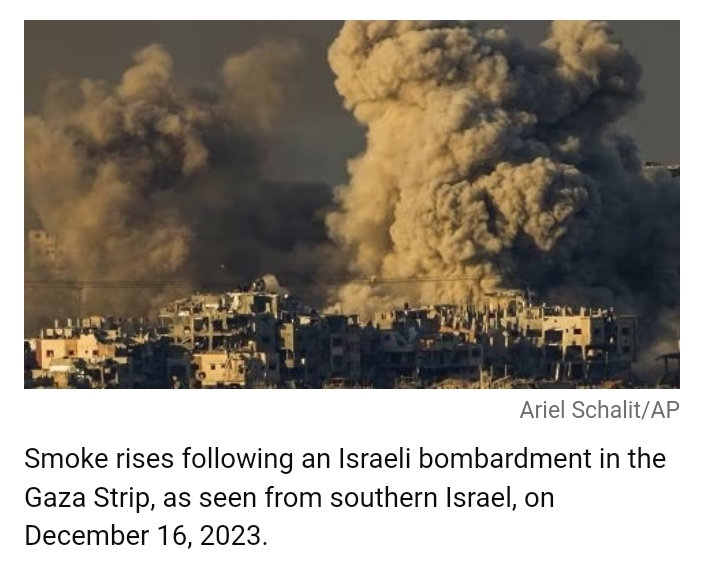The United Nations Security Council on Wednesday delayed for the third time this week the vote on a resolution calling for a suspension in fighting and encouraging more humanitarian aid into the beleaguered Gaza Strip, as President Joe Biden said the United States’ support for the resolution is still unresolved.
The delay was another sign of the hesitancy of the United States to sign onto a resolution that could be interpreted as a rebuke of Israel’s continuing military campaign in Gaza. The vote was originally scheduled for early this week. It has been delayed until Thursday.
The Wednesday delay came after days of intense negotiations. The United States has been reticent to sign onto a resolution that called for a “cessation of hostilities” in Gaza.
A diplomatic source told CNN that key issues with the draft that remain in negotiation are the “cessation of hostilities” language and the call for the UN to “establish a monitoring mechanism in the Gaza Strip with the necessary personnel and equipment, under the authority of the United Nations Secretary-General.”
The draft resolution as seen by CNN calls for a halt to hostilities to allow unhindered humanitarian access into Gaza. It also calls for the immediate and unconditional release of all hostages in Gaza, and access to address the medical needs of the hostages.
It also calls for a future two-state solution in which Gaza and the West Bank are unified under the Palestinian Authority and also spells out deep concern for the “dire and rapidly deteriorating humanitarian situation” in Gaza and its “grave impact on the civilian population.”
It specifies that civilians in Gaza do not have adequate access to sufficient “food, water, sanitation, electricity, telecommunications and medical services essential for their survival.”
It also calls on Israel to promptly and fully implement the announced opening of the Kerem Shalom Border crossing to allow in direct delivery of humanitarian aid to Palestinian civilians in Gaza.
Diplomats were hopeful that changing some language could gain American support, or at least an abstention from voting, which would allow the resolution to pass. As one of the five permanent members of the UNSC, a US veto means the resolution will not pass.
“We’re still working through the modalities of the resolution,” US National Security Council spokesperson John Kirby told CNN during a Tuesday afternoon briefing at the White House. “It’s important for us that the rest of the world understand what’s at stake here and what Hamas did on the 7th of October and how Israel has a right to defend itself against those threats.”
Biden, who was asked Wednesday when Israel should move to a less intensive phase of its conflict with Hamas, pointed to the negotiations at the UN as a reason not to give a firm answer.
“We’re negotiating right now at the UN the contours of a resolution … a resolution that we may be able to agree to,” he told reporters in Milwaukee, where he was promoting his economic record.
“That’s still going on,” he said. “I’ll be happy to talk to you after that.”
But while the US, Israel’s strongest ally, has repeatedly condemned the Hamas attack that killed more than 1,200 people October 7, the mounting civilian death toll in Gaza from Israel’s response has prompted top US officials, including Biden, to urge Israeli Prime Minister Benjamin Netanyahu to take more meaningful steps to protect innocent lives while waging his war against Hamas.
Nearly 20,000 Palestinians have been killed since October 7, according to the Hamas-controlled Health Ministry.
During a Security Council meeting earlier this week, Deputy Ambassador to the UN Robert Wood said civilians and journalists must still be protected and vital humanitarian aid needs to reach civilians.
Wood, who also expressed concerns about Israeli settler violence in the West Bank, did not imply how the United States would vote on the resolution.
The US has vetoed previous measures at the UN Security Council and voted against a call for a ceasefire in the larger UN General Assembly.
Last week, the wider United Nations General Assembly voted to demand an immediate ceasefire in war-torn Gaza, in a rebuke to the United States, which has repeatedly blocked ceasefire calls in the Security Council.
While the General Assembly vote is politically significant and seen as wielding moral weight, it is nonbinding, unlike a Security Council resolution.
(CNN)
UN Again Delays Vote On Gaza Humanitarian Aid As Biden Mulls US Vote
